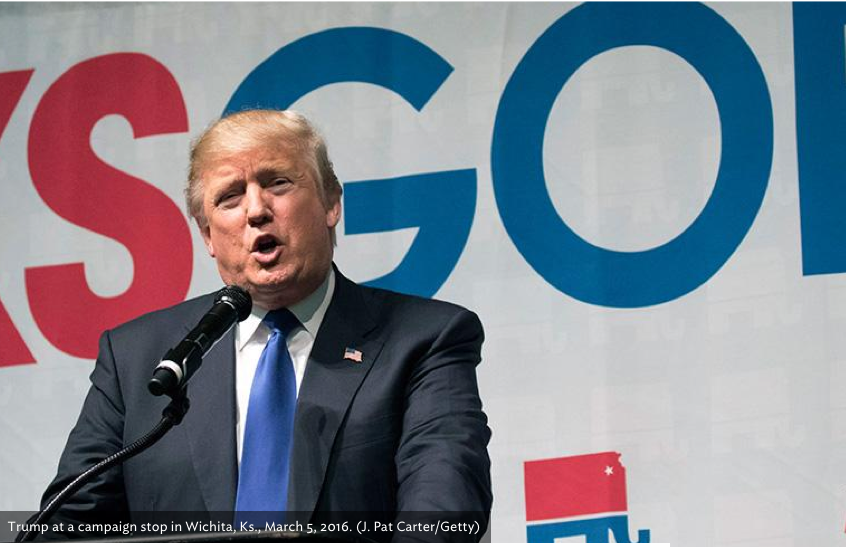Donald Trump suffered a sharp drop in CNN’s Political Prediction Market after Saturday’s voting. CNN’s market uses polling and forecasts from more than 100,000 users to predict election outcomes. Trump had a 78 percent chance of winning the GOP nomination before the voting in four states on Saturday. Afterwards, in the wake of his losses in Kansas and Maine, his odds fell to 63 percent. Trump narrowly won Kentucky and tied Ted Cruz for delegates in Louisiana.
Whether or not Donald Trump becomes the GOP presidential nominee will depend in large part on whether his support is declining in strength — as it did on Saturday – or continuing to expand.
If he takes from candidates who have left the race, such as Ben Carson, he is on track to win. If he is declining, he is unlikely to enter the Cleveland convention with the 1,237 delegates needed to win, because many of the delegates bound to win on the first ballot aren’t personal supporters and will probably abandon him. Trump could cut a deal for the delegates of, say, John Kasich, who has been noticeably reluctant to criticize Trump, even in the wake of the KKK brouhaha. But there are obstacle to such a deal as well.
So far, there are signs that Trump’s debate antics, his flip-flops, and the consolidation of the GOP field is slowing him down. As Henry Enten of FiveThirtyEight pointed out, Trump won 35 percent of the vote in Super Tuesday primaries on March 1 and only 33 percent in Saturday’s contests in Maine, Kansas, Louisiana, and Kentucky. He was favored to win the first two states but saw Ted Cruz beat him instead.
Consider what happened in Louisiana, a state where Trump’s final lead in the average of all polls surveyed by RealClearPolitics was 15.6 percent of the vote. He wound up winning by three points, only because he carried early votes with 47 percent. Ted Cruz won 23 percent, and Marco Rubio won 20 percent. Of the votes cast on Election Day, Cruz beat Trump, by 40.9 percent to 40.5 percent.
Right now, Trump has won 44 percent of the delegates selected so far. Cruz has won 34 percent, and Rubio has won 17 percent. Starting on March 15, the first states to allocate delegates on a winner-take-all basis start voting, led by John Kasich’s home state of Ohio and Marco Rubio’s home state of Florida.
If Trump wins both, he will have about half the delegates needed to clinch the GOP nomination. He then would have to win just over 50 percent of the delegates selected after March 15 to reach the magic delegate number of 1,237. If he did so, he would enter the convention with enough votes for a first-ballot victory, although some of his delegates who are established party officials and not Trump partisans could abstain and bring his total below a majority.
Source: John Fund, http://www.nationalreview.com
 Listen Online
Listen Online Watch Online
Watch Online Find a Station in Your Area
Find a Station in Your Area









 Listen Now
Listen Now Watch Online
Watch Online
